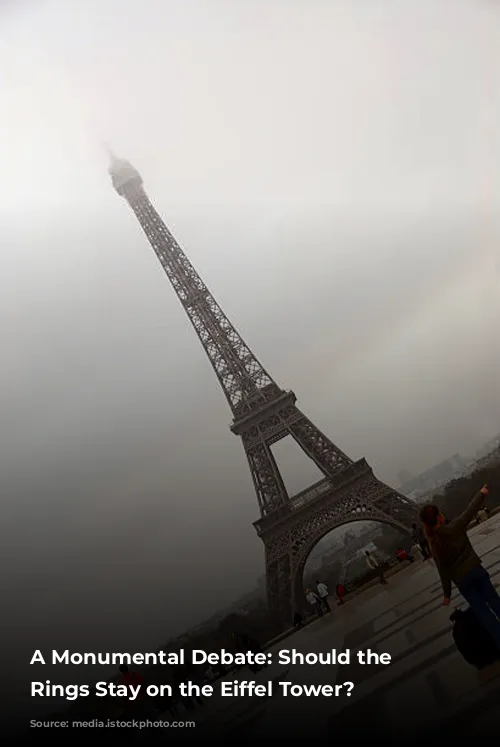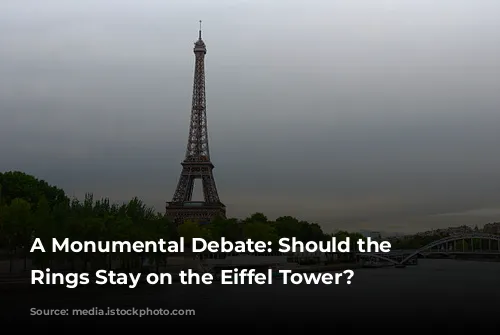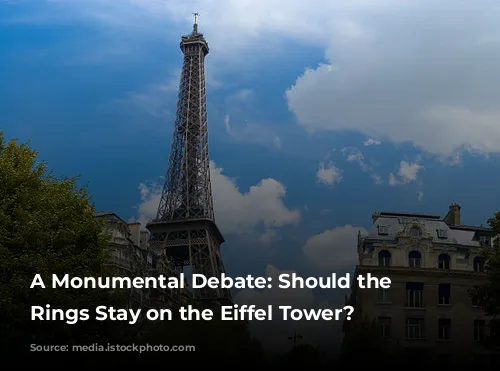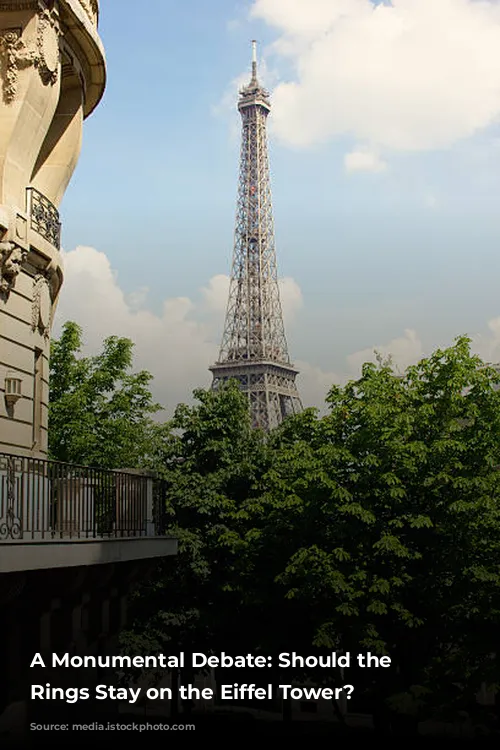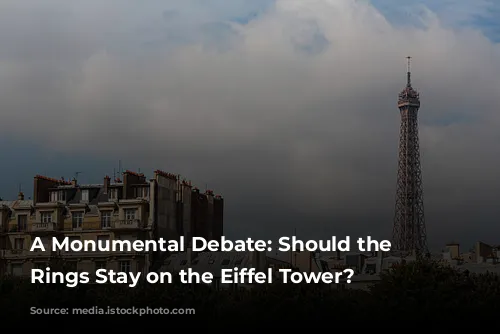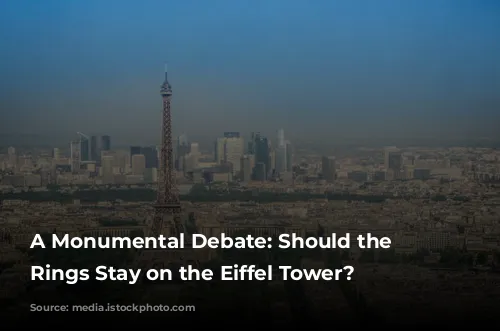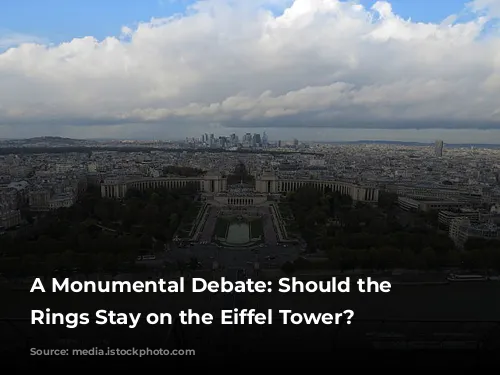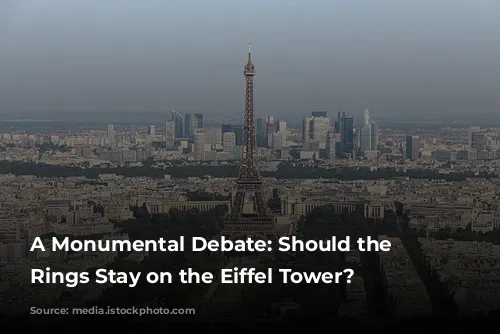The Parisian icon, the Eiffel Tower, is at the center of a heated debate. Should the Olympic rings, a symbol of the recent games, remain permanently on the tower? This decision has sparked controversy among Parisians, descendants of the tower’s designer, and even the city’s leaders.
A Towering Controversy: Keeping the Rings
The Olympic rings, a vibrant reminder of the games, were a hit with visitors. However, the idea of making them a permanent fixture on the Eiffel Tower has ignited strong opposition. The Association of Gustave Eiffel’s Descendants, concerned about the tower’s historical integrity, argues that the Eiffel Tower, a symbol of France, should not be permanently adorned with an “outside organization’s” symbol.
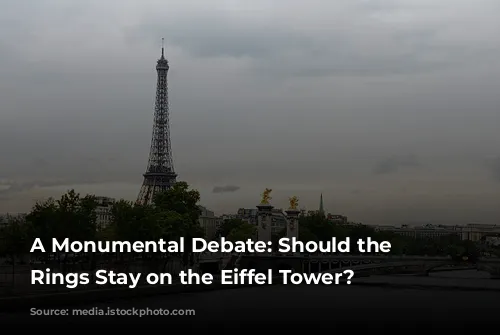
A Family’s Perspective: Respecting the Tower’s Legacy
The family of Gustave Eiffel, the tower’s designer, is divided on the issue. While they see no problem with the rings staying up for a bit longer, they believe the tower should not become an “advertising outpost.” They express concern that the mayor’s decision to keep the rings was made without proper consultation with the city council and relevant stakeholders.
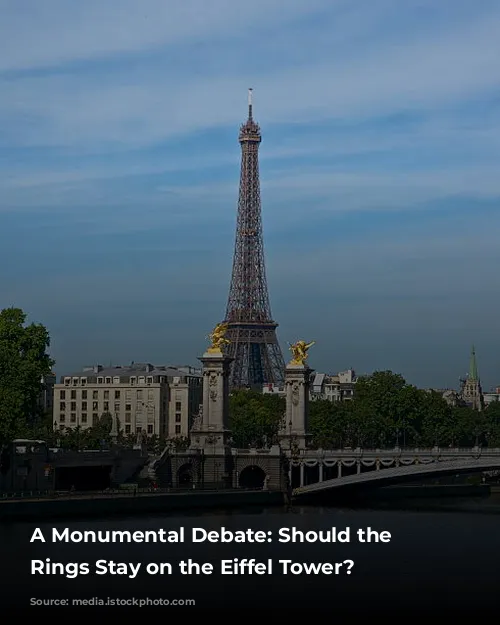
A City Divided: Mayor’s Decision Sparks Backlash
Mayor Anne Hidalgo, however, insists on keeping the rings, claiming she has the support of the International Olympic Committee (IOC). This decision, made without a public discussion, has met with resistance. Critics argue that the Eiffel Tower, a protected UNESCO World Heritage Site, should not be altered for a mere 17-day sporting event.
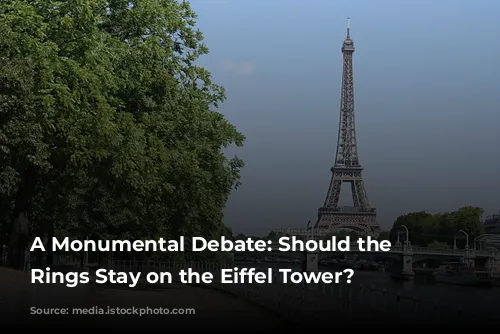
Protecting the Tower: A Battle of Opinions
Culture Minister Rachida Dati, a long-time critic of the mayor, calls for adherence to the legal procedures that protect historical buildings. She emphasizes that the Eiffel Tower, a monument of immense historical and architectural significance, requires authorization and impact studies before any modifications.
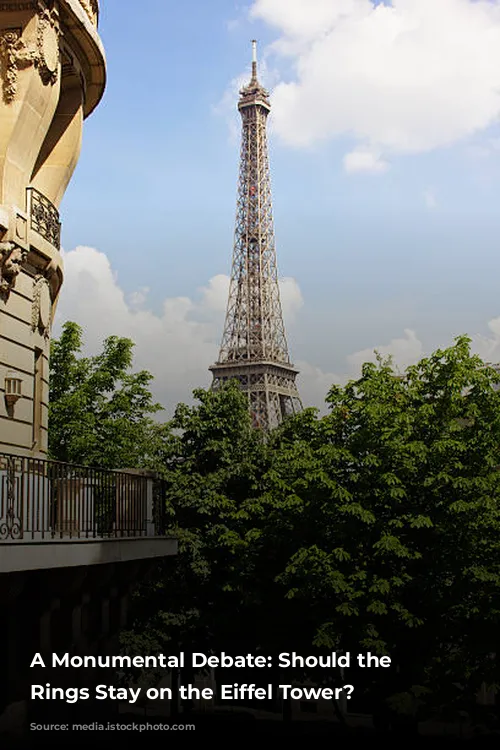
Social Media Reacts: A Mixed Bag of Opinions
On social media, opinions are divided. Some Parisians express concerns about the alteration of their city’s symbol, while others see the rings as a lasting tribute to the games. However, a common sentiment is that the Eiffel Tower, a 135-year-old landmark, represents something timeless, transcending the fleeting nature of a sporting event.
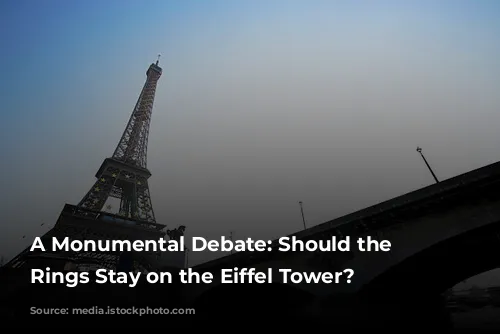
Beyond the Games: A Timeless Symbol
The Eiffel Tower, built in 1889 for the World’s Fair, has come a long way from being a temporary attraction. Initially met with resistance, it has transformed into a symbol of Paris and a global tourist destination. This iconic structure embodies French engineering prowess and continues to captivate visitors with its timeless grandeur.
The debate over the Olympic rings highlights the delicate balance between preserving a city’s historical identity and acknowledging contemporary events. While the rings may symbolize the spirit of the games, they may also overshadow the tower’s enduring legacy. Ultimately, the decision on their fate will reflect the values and priorities of the city and its leaders.
